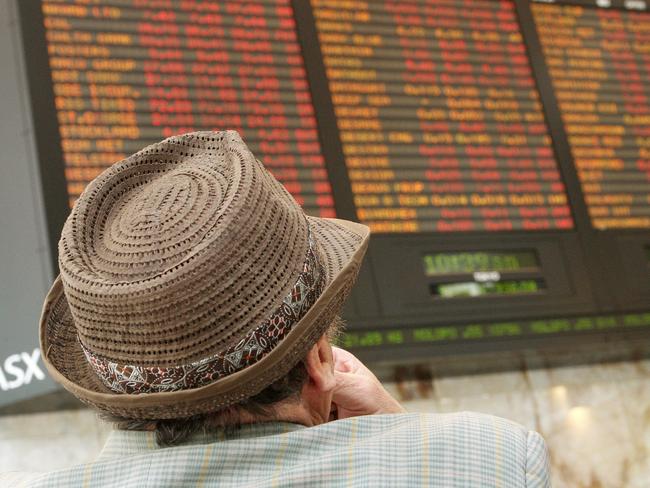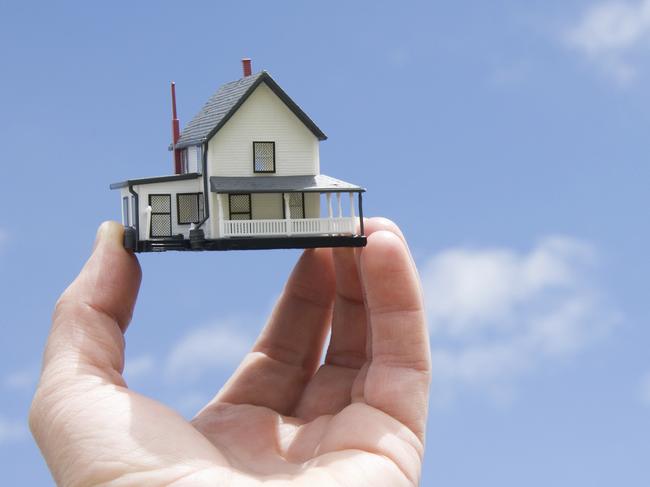Share market, falling Aussie property prices weigh on household wealth
Household wealth in Australia has been going backwards for six months — and we’ve just taken the biggest hit to our hip pockets for any quarter in seven years, official figures show. Here’s why.
Business
Don't miss out on the headlines from Business. Followed categories will be added to My News.
Falling house prices and weakness in the stockmarket have conspired to hit Australian households with the biggest drop in wealth for any quarter in seven years.
There was a 2.1 per cent drop in household wealth last quarter, the Australian Bureau of Statistics said yesterday.
MCCRANN: THE FACTS ABOUT WAGES UNDER LABOR
INVESTORS BAIL AS RECESSION GAUGE FLASHES RED
It was the deepest drop for any quarter since the three months to September 2011.
On average, household wealth fell $10,198.10 to $404,319.80 per person during the three months to last December, the bureau said.
That reflected falling property prices and superannuation losses due to stockmarket falls during the quarter, the ABS said.
It followed a $2263.70 fall in household wealth the previous quarter.

It is the first time since 2011 that household wealth, on a per-person basis, has declined for two consecutive quarters.
Over the December quarter, the ASX 200 tumbled 9 per cent, compared with a 0.2 per cent rise the previous quarter.
Housing prices in Australia’s biggest cities dropped more than 3 per cent over the same period.
In Melbourne they fell 3.2 per cent, and slide was bigger still in Sydney, at 3.9 per cent, according to research house CoreLogic.
The slide in Sydney was the biggest for any quarter since 1983.
The ABS said that among Australian households, the debt-to-asset ratio — which shows how heavily household balance sheets are geared — rose to its highest level in four years.
Debt was equal to 19.3 per cent of assets, up from 18.9 per cent in the previous quarter.
Meanwhile the ratio of mortgage debt to the value of residential land and dwellings climbed to 28.3 per cent.

The increase indicates mortgage debt grew faster than the value of residential real estate.
“The rise reflects falling residential property prices rather than strong growth in mortgage debt,” the bureau said.
Household gross disposable income fell 2.6 per cent to $312.7 billion, from $321.2 billion the previous quarter.
That was largely due to the holding losses in the value of land, dwellings and financial assets, according to the ABS. Australia has been more than 27 years without a recession.
CommSec chief economist Craig James said there had been a “rare event” in December, with share and housing prices both falling. “As a result, wealth levels fell. But that is in the past,” he said.
This quarter, Mr James said, the share market was “sitting on tidy gains” of about 8 per cent, which would be partially offset by lower home prices.



